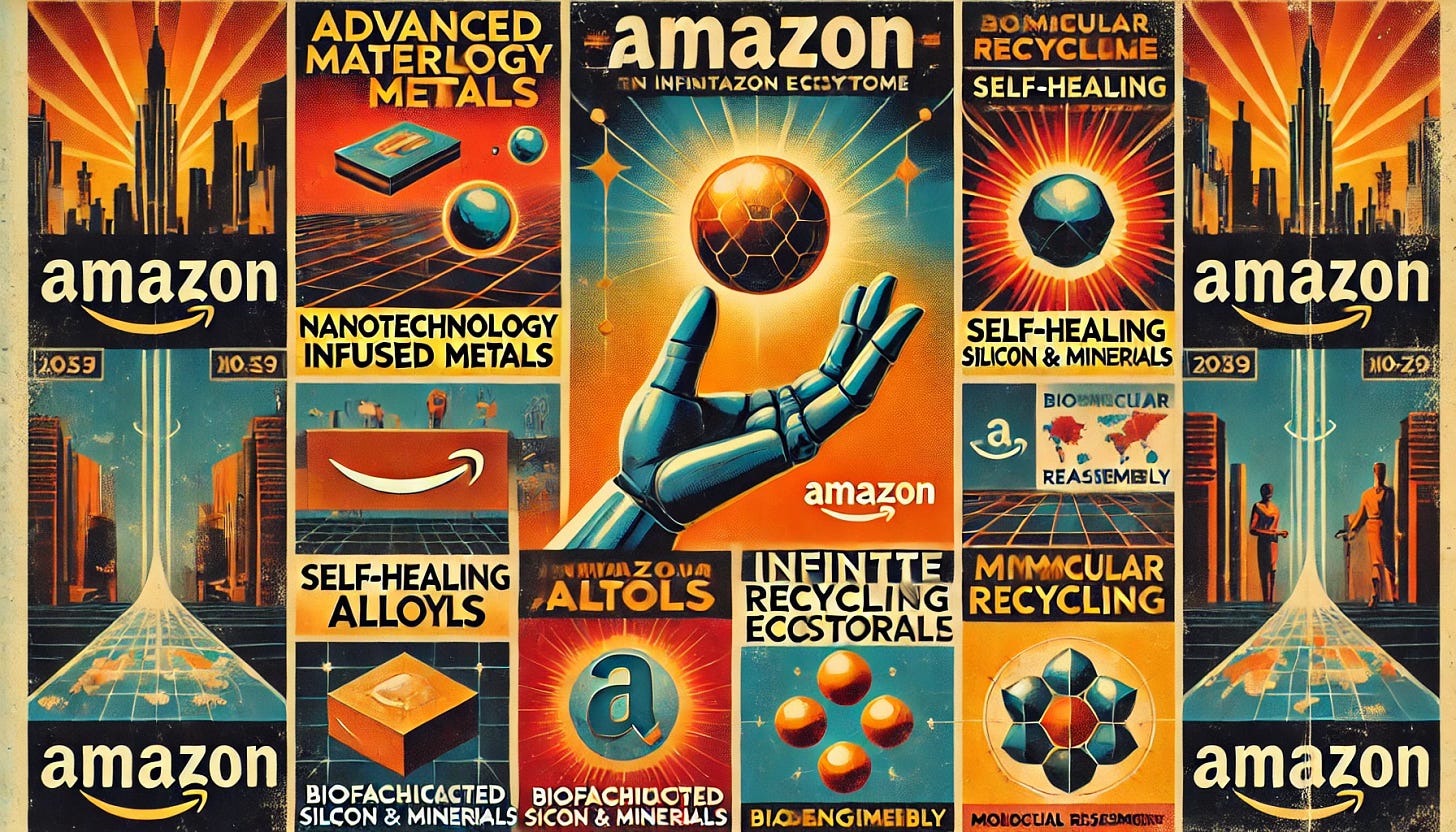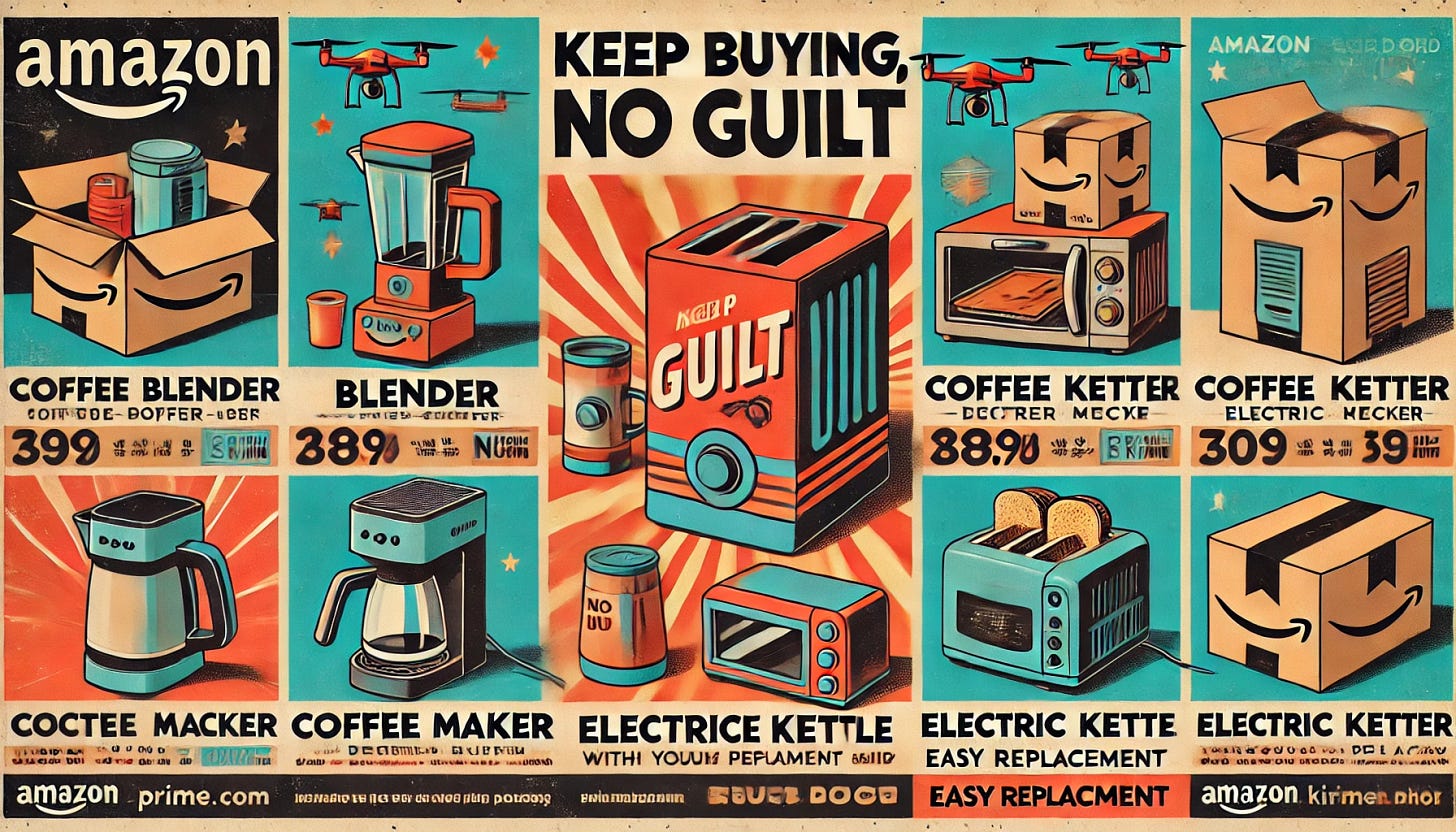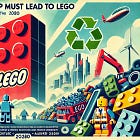Net-Zero gave way to Net-Infinity; thanks to Cardboard.
Cardboard is durable, light weight, cost-effective, and recyclable. Amazon built their distribution empire with it. In the 2020’s Amazon, growing tired of suppliers, bought up the global cardboard industry. Throwing resources at their nerds, Amazon then figured out how to reached nearly 100% recyclability on all its packaging. By 2035, Amazon extended this model to electronic components and other materials, literally printing simple circuitry onto cardboard with conductive paint. Utilizing nanotechnologies it pioneered: metals, silicon, and minerals became as recyclable as cardboard. So by 2040, instead of merely shipping disposable consumer goods, they began selling literally disposable products. Embracing planned obsolescence to its fullest, Amazon redefined itself as an empire of cardboard.
Take the Amazon Prime cardboard blender subscription, for instance. If it fails—hopefully not catastrophically—a drone delivers a new one within 30 minutes from a local beehive-style distribution center towering over the horizon. Frustrated with your Prime cardboard alarm clock in the morning? Toss it across the room if you like; Amazon’s got your back with an endless supply of replacements. Embrace the freedom to not care, knowing a quick, eco-friendly solution is always just a drone away.
Everything breaks by design, so that Amazon can replace them. The transition went unnoticed, so appealing was the convenience of apathy. With rising inflation and mainstream environmentalism, infinitely recyclable and cheap cardboard products seemed brilliant. Peak capitalism! Replacements were guaranteed as long as you were subscribed, shifting from ownership to a service model.
Who knew capitalism and sustainability could fit so neatly in a cardboard package? And it only cost all sense of ownership.
Notes from me:
Inspired by this video by Modern MBA.
If you're wondering, I'm not endorsing any stance. In reality, these are wicked problems with lots of stakeholders. These shorts aim to capture a reductive perspective with manufactured consensus.
A Testimonial!
“I like Oddtopia - think this is something I would spend my mornings reading. And maybe discussing afterwards with friends over lunch.”
— Product Manager @ Unnamed Smart Recycling Company
I’m thrilled that I infected a professional in the field with an idea worth discussing, someone who is actively shaping our future in this space. So, I'll definitely churn out a few more of these!
Oddtopia
noun
Neither utopia nor dystopia, but a cultural milieu defined by an (over)embracing of quirky, idiosyncratic societal norms.
If you missed the first one, check it out here:








